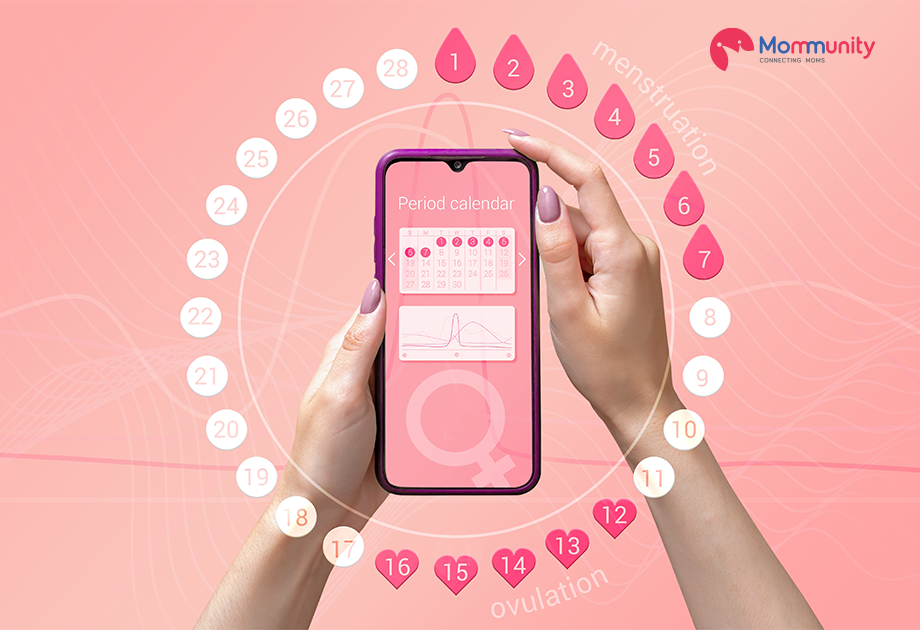|
Getting your Trinity Audio player ready...
|
As parents, there’s nothing more distressing than seeing our little ones in pain, especially when they are unable to communicate the cause of their discomfort. Colic pain in babies is a common concern that affects infants during their early months. It is characterized by intense, prolonged crying and restlessness, often accompanied by excessive gas and abdominal discomfort.
While dealing with Colic Pain in Babies can be challenging, there are several Simple and Effective Home Remedies that can provide relief to both the baby and the anxious parents. In this blog, we will explore some natural remedies that can help soothe colic pain in babies, promoting their well-being and bringing comfort to the whole family.
Understanding Colic Pain in Babies
Colic is a term used to describe excessive and frequent crying in infants who otherwise appear healthy and well-fed. Typically, colic begins within the first few weeks of life and may last until the baby is three to four months old. While the exact cause of colic remains unknown, it is believed to be associated with various factors, including digestive issues, immature digestive systems, overstimulation, and even anxiety or stress experienced by the baby.
Colic Pain in Babies is a perplexing and often frustrating condition for both parents and healthcare providers due to its unclear cause. Despite extensive research, the exact reason why colic occurs remains uncertain.
How Colic can affect any Baby?
Colic can affect any baby, regardless of gender, ethnicity, or social-economic background. It is estimated that around 10% to 40% of infants experience colic at some point during their early months of life. Colic typically starts within the first few weeks of birth and can last until the baby is three to four months old. While colic is not a severe medical condition, it can be distressing for both the baby and their parents.
The exact reason why some babies develop colic while others do not remains uncertain. However, certain factors are believed to contribute to the likelihood of a baby experiencing colic:
Age: Colic most commonly occurs in infants between the ages of 2 weeks to 4 months. As babies grow and their digestive systems mature, colic tends to improve on its own.
Firstborns: Studies have shown that firstborn babies are more likely to experience colic compared to later-born siblings. This could be due to the parents’ inexperience with caring for an infant or the added stress of adjusting to parenthood.
Feeding Method: Some research suggests that breastfed babies may have a slightly lower risk of colic compared to formula-fed babies. Breast milk is easier to digest and provides natural antibodies that can benefit the baby’s immune system.
Maternal Diet: If breastfeeding, the mother’s diet may play a role in colic. Certain foods consumed by the mother could trigger gas or sensitivities in the baby, contributing to colic symptoms.
Family History: If there is a history of colic in the family, the baby may be more prone to experiencing it as well. While the genetic link to colic is not fully understood, it’s worth considering if other family members experienced similar issues during infancy.
Environmental Factors: Overstimulation, exposure to loud noises, bright lights, and disruptions in routine can increase a baby’s susceptibility to colic.
Premature Birth: Premature babies may have a higher likelihood of experiencing colic. Their digestive systems may not be as developed, leading to greater discomfort and fussiness.
It’s essential to remember that colic is a temporary condition, and most babies outgrow it as they reach four to six months of age. As the baby’s digestive system matures and they develop better-coping mechanisms, the episodes of colic typically decrease in frequency and intensity.
Signs of Colic Pain in Babies
Recognizing the signs of colic pain is crucial for parents to differentiate it from other health issues. Common symptoms of colic pain in babies include:
Immature Digestive System: Babies are born with developing digestive systems, and this immaturity can lead to difficulties in processing and digesting food, resulting in colic. The digestive tract is still adjusting to handle the intake of breast milk or formula, leading to gas accumulation and discomfort.
Gas and Digestive Discomfort: Excessive gas in the baby’s digestive tract is a common symptom of colic. Gas can build up due to the baby swallowing air while feeding or crying, leading to abdominal pain and discomfort.
Overstimulation: Babies are highly sensitive to their environment, and overstimulation can be overwhelming for them. Loud noises, bright lights, and busy surroundings may cause anxiety and contribute to colic episodes.
Food Sensitivities: In some cases, babies may have sensitivities to certain foods that the breastfeeding mother consumes or the ingredients present in formula milk. These sensitivities can trigger gastrointestinal distress and exacerbate colic pain.
Psychological Factors: Some experts suggest that colic might have psychological triggers, such as emotional stress, anxiety, or changes in routine. However, the exact link between these factors and colic remains speculative.
Swallowing Air: Babies can eat air while feeding, especially during rapid or forceful feeding. This trapped air can lead to discomfort, contributing to colic pain.
Lactose Intolerance: Some infants may experience lactose intolerance, which occurs when their bodies cannot fully digest lactose, a sugar found in breast milk and formula. This condition can result in bloating, gas, and colic-like symptoms.
Gastroesophageal Reflux (GER): GER occurs when stomach contents return to the esophagus, producing irritation and pain.
It is essential for parents to understand that colic is not a result of poor parenting or something they are doing wrong. Colic is a temporary condition that typically resolves on its own as the baby’s digestive system matures and they develop better-coping mechanisms. While it can be stressful for parents, it’s essential to remain patient, and calm, and seek support from healthcare professionals if needed.
Simple and Effective Home Remedies for Colic Pain in Babies
Prevention and Management
Although colic cannot be entirely prevented, parents can take some measures to manage the condition and provide relief to their babies:
Ensure Proper Burping: After each feeding, burp the baby to expel any trapped air from the stomach.
Adjust Feeding Techniques: If breastfeeding, consider adjusting your diet to avoid foods that may cause gas or sensitivities in your baby. If using the formula, consult with your pediatrician about using a different formula that is easier for the baby to digest.
Create a Calm Environment: Limit exposure to loud noises and bright lights, especially during colic episodes. Provide a calm and peaceful environment to help soothe the baby.
Use Soothing Techniques: Implement gentle massage, swaddling, and white noise to create a comforting atmosphere for the baby.
Seek Support: Reach out to pediatricians or healthcare providers to rule out any underlying medical conditions and to seek guidance on managing colic.
Gently Massage the Baby’s Tummy
A gentle tummy massage can work wonders in relieving Colic Pain in Babies. Massage the baby’s tummy in a clockwise circular motion using warm natural oil, such as coconut or olive oil. The massage can help release trapped gas and promote better digestion, providing soothing comfort to the baby.
Bicycle Legs Exercise
Bicycle legs exercise is an excellent technique to relieve gas and constipation in babies, thus easing Colic Pain. Lay your baby on their back and hold their legs up. Slowly mimic a bicycling motion with their legs, alternating between bending and extending. This gentle movement can help alleviate gas buildup and improve bowel movements.
Offer a Pacifier or Thumb Sucking
Sucking is a natural reflex that babies use to soothe themselves. Offering a pacifier or allowing them to suck on their thumb can be a comforting remedy for Colic Pain in Babies. The rhythmic action helps release endorphins, promoting relaxation and reducing crying episodes.
Swaddle the Baby
Swaddling creates a warm, secure environment for the baby that mimics the feeling of being in the womb. It can have a calming effect, providing relief from Colic Pain in Babies. However, ensure that the swaddle is not too tight, allowing the baby’s hips to move freely to prevent any hip issues.
Use White Noise or Gentle Music
White noise machines or soft, calming music can work wonders in soothing a colicky baby. The gentle sounds can distract the baby from discomfort and create a peaceful ambiance, promoting relaxation and sleep, thereby easing Colic Pain in Babies.
Maintain a Calm Environment
Babies can be highly sensitive to their surroundings. Maintaining a calm and peaceful environment can help reduce colic episodes. Limiting loud noises, bright lights, and excessive stimulation during colic episodes can create a soothing atmosphere for the baby.
Warm Bath
A warm bath can help relax the baby’s muscles and provide relief from Colic Pain in Babies. The warm water can also help ease any tension caused by gas or abdominal discomfort. Make sure the water temperature is appropriate and always keep a firm grip on the baby during the bath.
Herbal Remedies (Consult with a Paediatrician)
Some herbal remedies like chamomile or fennel tea are believed to have soothing properties that may alleviate Colic Pain in Babies. However, it is crucial to consult with a pediatrician before administering any herbal remedies to ensure they are safe for the baby.
Provide Frequent Burping
Frequent burping during and after feedings can help prevent gas buildup and reduce the risk of colic pain. Gently pat or rub the baby’s back to facilitate burping and aid in digestion.
Adjust Feeding Techniques
If you are breastfeeding, consider adjusting your diet to avoid certain foods that may trigger gas in your baby. If you are using the formula, consult with your pediatrician about using a different formula that is easier for the baby to digest.
A colic pain in babies can be distressing for both the little ones and their parents. However, with the help of these simple and effective home remedies, you can provide comfort and relief to your baby during this challenging phase. It’s essential to remember that each baby is unique, so finding the most effective remedies for your child might require some trial and error.
If colic pain symptoms persist or worsen, it’s essential to consult with a pediatrician to rule out any underlying issues. With love, care, and patience, you can navigate through this phase, ensuring your baby’s well-being and strengthening the bond between parent and child. Trusting your instincts as a parent and seeking support from healthcare professionals, if needed, will help you better manage colic-related concerns.
Conclusion
Colic is a common phenomenon that affects a significant number of infants during their early months of life. It can be distressing for both the baby and their parents due to its unclear cause and prolonged periods of intense crying and restlessness. Regardless of the baby’s gender, ethnicity, or socio-economic background, colic can affect any infant.
However, it is typically a temporary condition that improves with time. Understanding the factors that may contribute to colic, such as age, feeding method, family history, and environmental factors, can help parents manage the condition and provide comfort and support to their little ones.
Remember that colic is a phase that will pass, and with love, patience, and understanding, parents can navigate through this challenging period and strengthen the bond with their precious bundle of joy. Seeking guidance from pediatricians or healthcare professionals is always recommended if concerns persist or worsen. This ensures the baby’s well-being and helps alleviate parental stress and anxiety. Trust in the natural development of your baby, and know that with the right care and support, you can help them through this temporary phase of colic pain.




